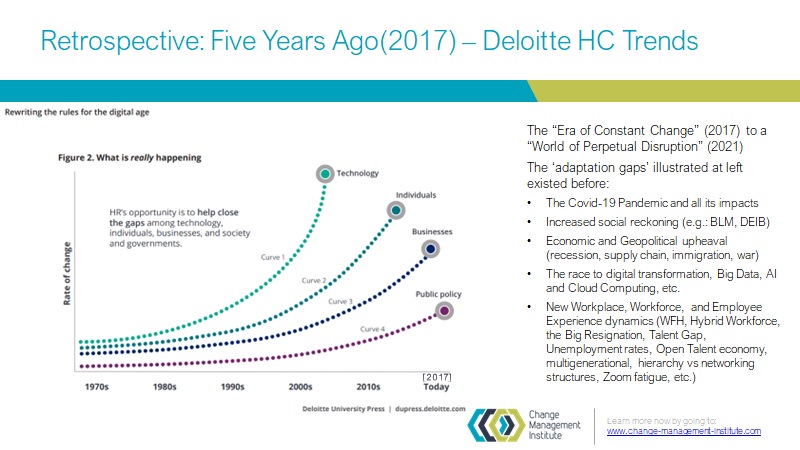More On Trends
Introduction
The over-riding trend, mostly based around technology, is 'digitalisation of everything' which has been accelerated owing to the impact of the pandemic (COVID-19).
Fifteen interesting trends (not necessarily in order of importance)
1. 5G (greater connectivity where devices talk to each other using AI and the Internet; designed to deliver higher connection speeds and massive network capacity, ie bandwidth; providing decentralised processing power)
2. Internet of Things (IoT) (becoming faster; able to handle more data; able to connect to more and more devices)
3. Artificial Intelligence (AI) (machine learning; as connected devices proliferate, AI will accelerate in collecting and analysing data for decision-making)
4. Computer Power (AI will require unprecedented computing power; increasing importance of cloud computing; quantum computing)
5. Hyperscalers (upgrading semi-conductors, chips, etc to handle AI's needs, etc)
6. Global Datasphere/Cyber Security (storing the tsunami of data and protecting it securely will be a challenge; predictions
"...Global datasphere will grow to 175 zetta-bytes in 2025, from 33 ZB in 2018..."
IDC as quoted by Tony Featherstone, 2021
7. Feedback Loops (access to extensive data insights provides the basis for organisations being able to rapidly improve and differentiate their products and services in competitive markets; creating value from captured data)
8. Web 3.0 (it is a decentralised version of the digital world; peer-to-peer Internet, ie by-passing the middleman such as via online platforms)
9. Blockchain (it is a form of distributed ledger, that makes information more secure and transparent; helping lead to the development of Web 3.0; individuals rather than monopolies (big tech giants) control personal data, ie holding and monetising personal data)
10. Cryptocurrencies (digital currencies that use blockchain; people taking control of their money rather than governments and central banks influencing the value of currencies)
11. Creator Market Place (content creators and influencers who use a range of tech tools to engage and monetise their fan base directly, rather than going through middlemen, eg musicians
"...will form a more direct relationship with their fans and monetarise content through tiered experiences. This might involve super fans paying extra to preview their favourite singer's latest album or receive bonus songs..."
Tony Featherstone, 2021
12. Non-fungal tokens (NFT) (our unique, non-interchangeable units of data stored in a digital ledger through blockchain technology; this is currently being used
"... from artists using NFTs to sell their art in creative marketplaces and in ticket selling companies using NFTs to earn income from every ticket resale and to stop the practice of ticket 'scalping'..."
Andrew Macken as quoted by Tony Featherstone, 2021
13. Metaverse (this combines VR, augmented reality, video, etc so users can live in a digital universe, ie
"...three-dimensional Internet where we experience things firstly through an avatar..."
Tony Featherstone, 2021
You feel like you are physically there, eg in a Zoom meeting, you feel that you are the same room.
14. Remote work (linked with the metaverse, it will become easier to work anywhere, any time; decentralising the workforce)
15. Electric vehicles (exponential growth in global demand is expected for EVs, especially as pressure to cut greenhouse-gas emissions intensifies)
NB The below graph shows the rate of change, with technology moving the fastest and public policy the slowest and the gap widening:

(source: Cindy Smith, 2022)
